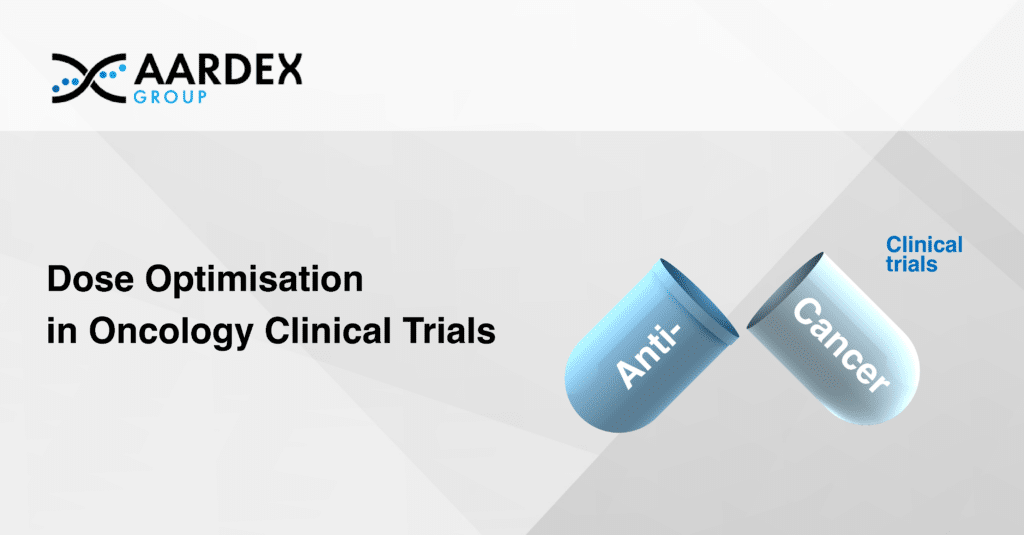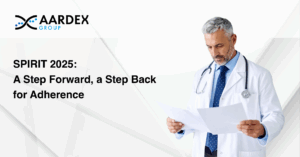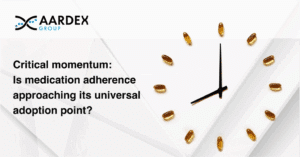Global Cancer Challenges and the Need for Effective Dose Optimisation
Let us first recognise the enormity of the challenges we are facing, on a global scale, when it comes to cancer. It is estimated that there were 18.1 million new cases of cancer worldwide in 2020, with around 10 million deaths in same period. The most common cancers are female breast, lung, bowel and prostate cancers, accounting for more than 40% of all cancers diagnosed worldwide. Frighteningly, future trend analysis suggests that there will be 28 million new cases of cancer each year by 2040.[1]
And yet, at the same time, 90% of clinical trials focused on oncology fail.[2] In a study conducted in 2019 it was suggested that there is just a 3.4% probability of success for new oncology therapy developments. A later study published by the BIO estimates a 5.4% likelihood of success from preclinical to FDA approval for cancer treatments. The reality is therefore that there has been little change in the probability of success in the last 20 years.[3]
The reasons for this high failure rate are numerous and complex, however it is mooted that perhaps the biggest reason is that cancer involves many variables involving heterogeneous populations and diseases, and that the industry consistently chooses targets for therapy that cannot be effectively demonstrated via traditional clinical trial phases.
In addition, there is a suggestion that the industry is not testing the right products, focused on the right factors, in the right populations or models, at the right time prior to going to clinical trial.
Perhaps this is part of the reason why the success rate for therapies that even get to the point of approval by the FDA is less than 25%.
Considering the eye watering cost of development of an NCE, the current approach which delivers such a small return cannot be regarded as cost effective or in the best interests of any stakeholder. There has to be a better way.
Here at AARDEX, we believe there is another key challenge – the failure by some to recognise the importance of dose optimisation in clinical trials, and particularly in oncology, where the therapeutic window between efficacy and toxicity is often very narrow.
The Impact of Optimizing Dosing in Oncology Drug Development
Given the complexity of cancer treatments and the significant risks involved, dose optimisation is fundamental for the following reasons…
- Efficacy maximization. Of course, the ultimate goal is to deliver a therapy that effectively suppresses or eradicates the tumour while minimising harm to healthy cells. The balance for drug optimisation is therefore to ensure that the dose is concentrated enough to be effective, but not so high that it results in unacceptable side effects. We often hear from patients that the sickness derived from the treatment is worse than the cancer itself!
- Improving Patient Outcomes. The effectiveness, or not, of oncology treatments directly impacts on patient survival rates. It is therefore fundamental that the optimum dose is identified to not just enhance the quality of life for patients, but to significantly enhance their chances of survival.
- Patient Safety. Cancer therapies including chemotherapy are notoriously toxic, and while sometimes effective in tackling the tumour, they also need to cause the least amount of pain and harm to the patient.
- Reducing Adverse Events. Sustained high doses of oncology drugs can lead to severe adverse events, including myelosuppression, organ damage, and other life-threatening conditions, often leading to poor patient adherence and sub-optimal outcomes. Optimising the dose reduces the incidence and severity of these side effects.
- Establishing the pharmacokinetics of a drug. During the drug development process, phase I trials are the first occasion to study the pharmacokinetics (PK) of a drug. They are performed in healthy volunteers, or patients in oncology, and are designed to determine a safe and acceptable dose for the later phases of clinical trials. By optimising the dose at this stage, we avoid the cost and high failure rate associated with iterative dosing later in the trial phase.
- Establishing the Pharmacodynamics of a drug. Where Pharmacokinetics studies what the body does to the drug, Pharmacodynamics (PD) studies what the drug does to the body. The understanding of anticancer pharmacodynamics has grown in recent years due to advances in analytical and computational technology, resulting in smarter, better dose optimisation.
- Risk Mitigation. By definition, cancer patients are in a fragile state and the drug regimen can often make that fragility worse, leading to real safety concerns. Dose optimisation helps mitigate risks by reducing the likelihood of severe adverse events.
- Tailored Dosing. Dose optimisation allows for the adjustment of doses to individual patient needs, enhancing the overall safety profile across a diverse range of patient populations.
- Facilitating Personalised Medicine. Across all areas of medicine, we are witnessing a real shift towards personalised medicine. Oncology conceivably could benefit the most from such an approach given the diversity of the disease and the patient populations affected. Dose optimisation plays a key role in move towards personalised medicine, as different patients may require different doses to achieve the same therapeutic effect.
- Adaptive designs for clinical trials. Adaptive trials have become popular recently, accumulating data to modify the ongoing trial without undermining the integrity and validity of the trial. As a result, adaptive designs provide a flexible and effective way to conduct clinical trials, improving the study power, reducing the sample size and total cost. By its very nature, optimising the dose is critical to the success of an adaptive design strategy.
- Accelerating Drug Development. By identifying the optimal dose early in the trial process, researchers can streamline the development of oncology drugs, potentially bringing effective treatments to market faster.
- Enhancing the chances of regulatory approval and market success. Regulatory agencies such as the FDA and EMA, require comprehensive data the safety and efficacy of the drug. Dose optimisation is essential for meeting these requirements.
Conclusion: The Critical Role of Dose Optimisation in Oncology Clinical Trials
Delivering hard evidence for your trial…
It is clear that dose optimisation in oncology clinical trials is vital to ensuring patients receive the most effective treatment with the least amount of harm. It enhances patient safety, improves treatment outcomes, supports the development of personalised medicine, and plays a crucial role in the regulatory approval process.
AARDEX has a best practice methodology, supported by robust case studies and independent of any device package or software platform. Utilising our expertise and experience in medication adherence and patient compliance we acquire, monitor, analyse, guide and interpret data to deliver absolute clarity and bring confidence to sponsors, trialists, and ultimately, patients.
AARDEX is the only mature, robust and proven adherence solution on the market today, one that maximizes the reward, mitigates the risk and delivers resolution for your clinical trial. All delivered with the clarity, integrity and certainty you need to proceed with complete confidence in the exposure response.
To find out more about the AARDEX solution click here
Resources
[1] https://www.cancerresearchuk.org
[2] https://www.outsourcing-pharma.com/Article/2022/06/07/can-the-industry-elevate-the-success-rate-of-cancer-trials#:~:text=MC%3A%20One%20of%20the%20clearest,success%20for%20oncology%20development%20efforts.



